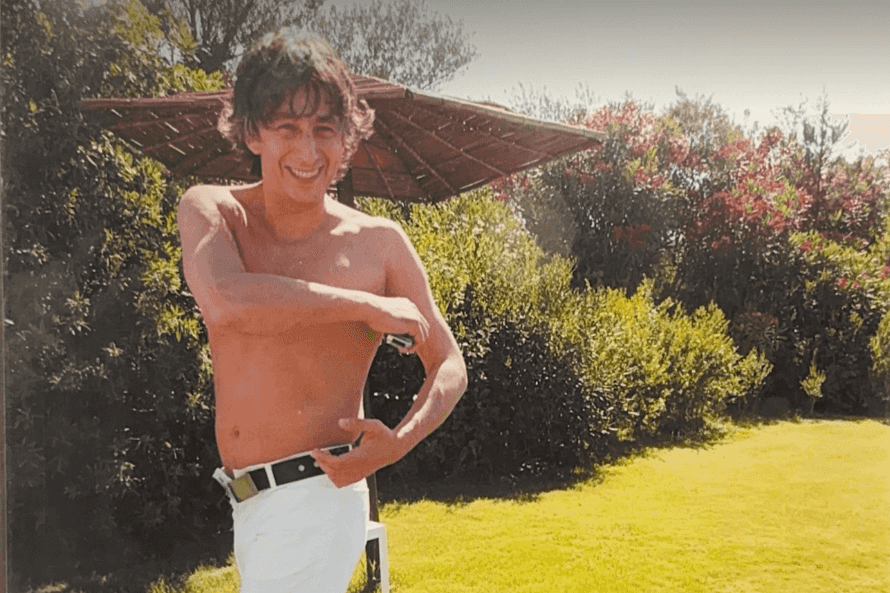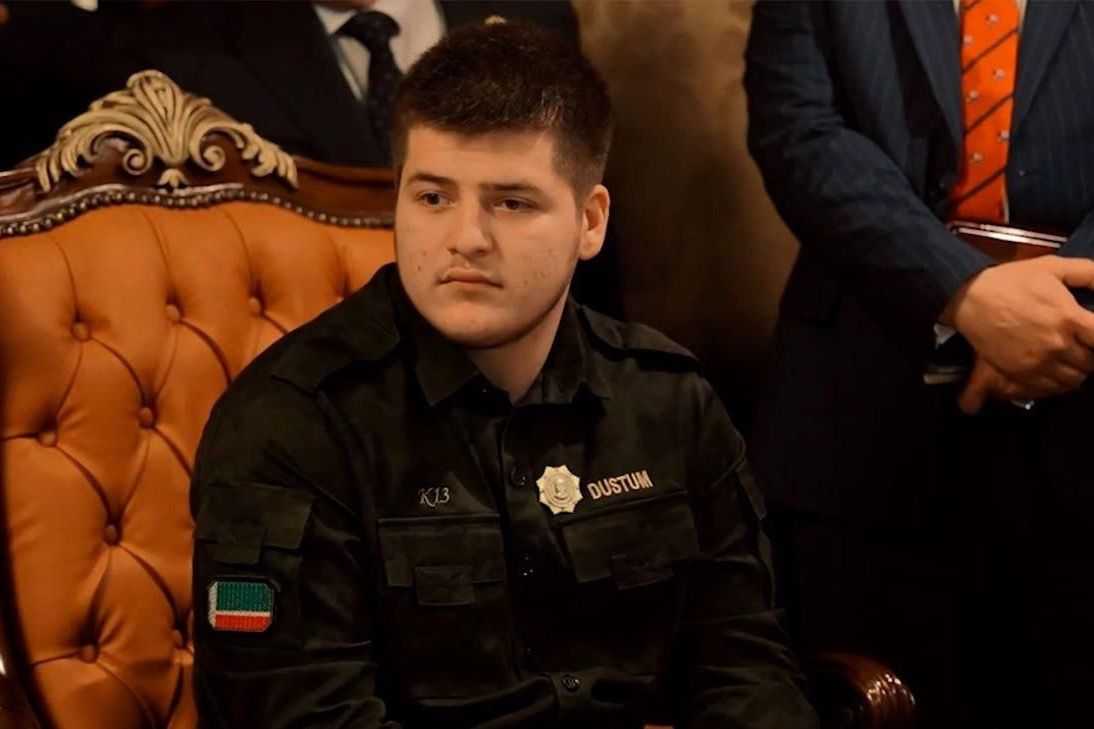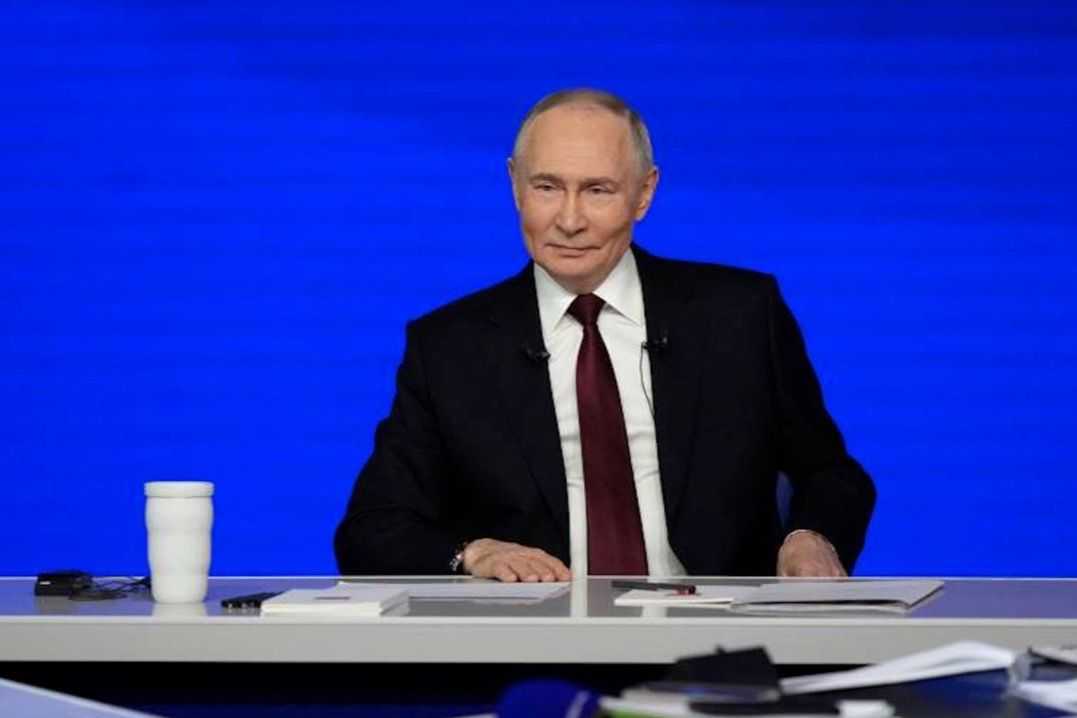Silence in the courtroom: how one of Chechnya’s last human rights defenders was convicted on drug charges

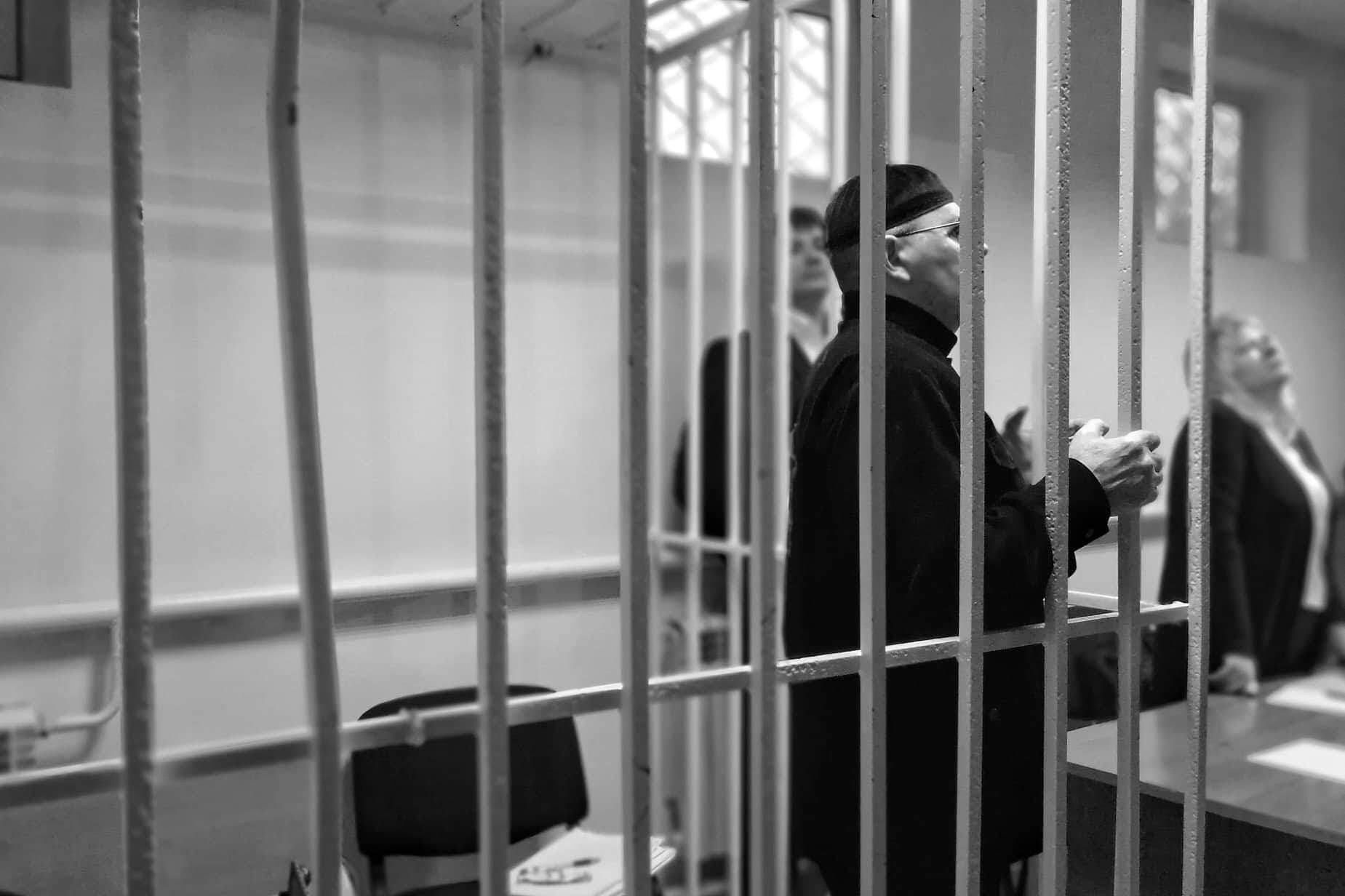
On 18 March, Chechen human rights defender Oyub Titiyev was sentenced to four years in prison on trumped-up drug charges. He is only the latest victim in Russia’s repressions against civil society in the North Caucasus.
‘Let justice reign!’ reads the banner hanging over the compound of the court house in Shali, Chechnya. The slogan is accompanied by a strict-looking Akhmat Kadyrov, the North Caucasus republic’s former leader. Next to the courthouse, there’s a new business centre (‘Shali-City’) and a mosque named in honour of Akhmat Kadyrov’s son, Ramzan.
A police jeep leaves the compound. Oyub Titiyev, the director of the Grozny branch of the Memorial human rights association, has just been placed in it after receiving a four year prison sentence on narcotics charges. This sentence was less than what the prosecutors requested — four years of strict regime prison plus a 100,000 rouble (£1,160) fine.
Oyub’s older brother Yakub was ready for this sentence. Last summer he’d received hints that if Oyub apologised to the right people, then the Memorial director could have been ‘forgiven’ — in the form of a lighter sentence and a quiet life for his family. But Titiyev’s relatives did not even consider it as an option. ‘He’s got nothing to be sorry for, let the guilty ones apologise’, Yakub says.
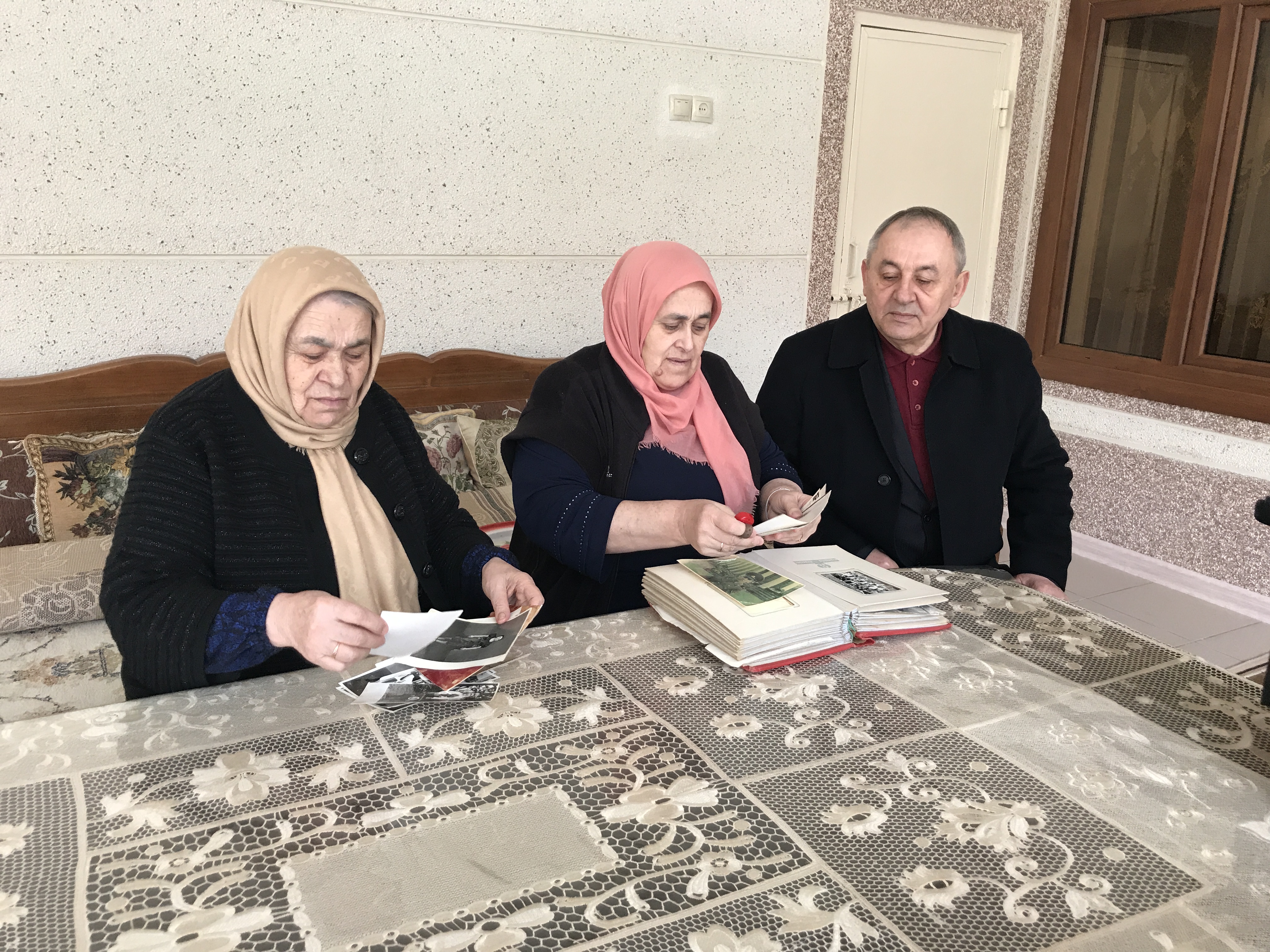
The war on drugs
Given who was being convicted and for what, you could call Oyub Titiyev’s four-year sentence ‘light’. But Titiyev has a different opinion.
‘Oyub sees the situation clearly: for him, any kind of guilty verdict can’t be considered light. He has nothing to do with the charges against him’, says Marina Dubrovina, his lawyer.
According to Dubrovina, the fact that the Shali court opted for a light sentence could mean that Titiyev’s innocence had become ‘too obvious’. ‘The decision to sentence him to a penal settlement instead of a strict regime prison means we can request parole quite soon, in May.’
But while Titiyev is in the hands of law enforcement, ‘it’s too early to start clapping’, the lawyer adds. Too often, Dubrovina has seen situations where a relatively light sentence is followed by a second criminal prosecution. ‘This is what happened to Yevgeny Vitishko and Suren Gazaryan [Russian ecologists from Krasnodar], and it was the same situation with Mikhail Savva [a Krasnodar political activist who left Russia in 2015].’
For people who know Titiyev, the charge that the 61-year-old was found in possession of 200 grammes of marijuana looks absurd. A keen athlete and observant Muslim, Oyub Titiyev has never smoked nor drank in his life. But in ‘Chechen realities’, a narcotics charge was all too predictable.
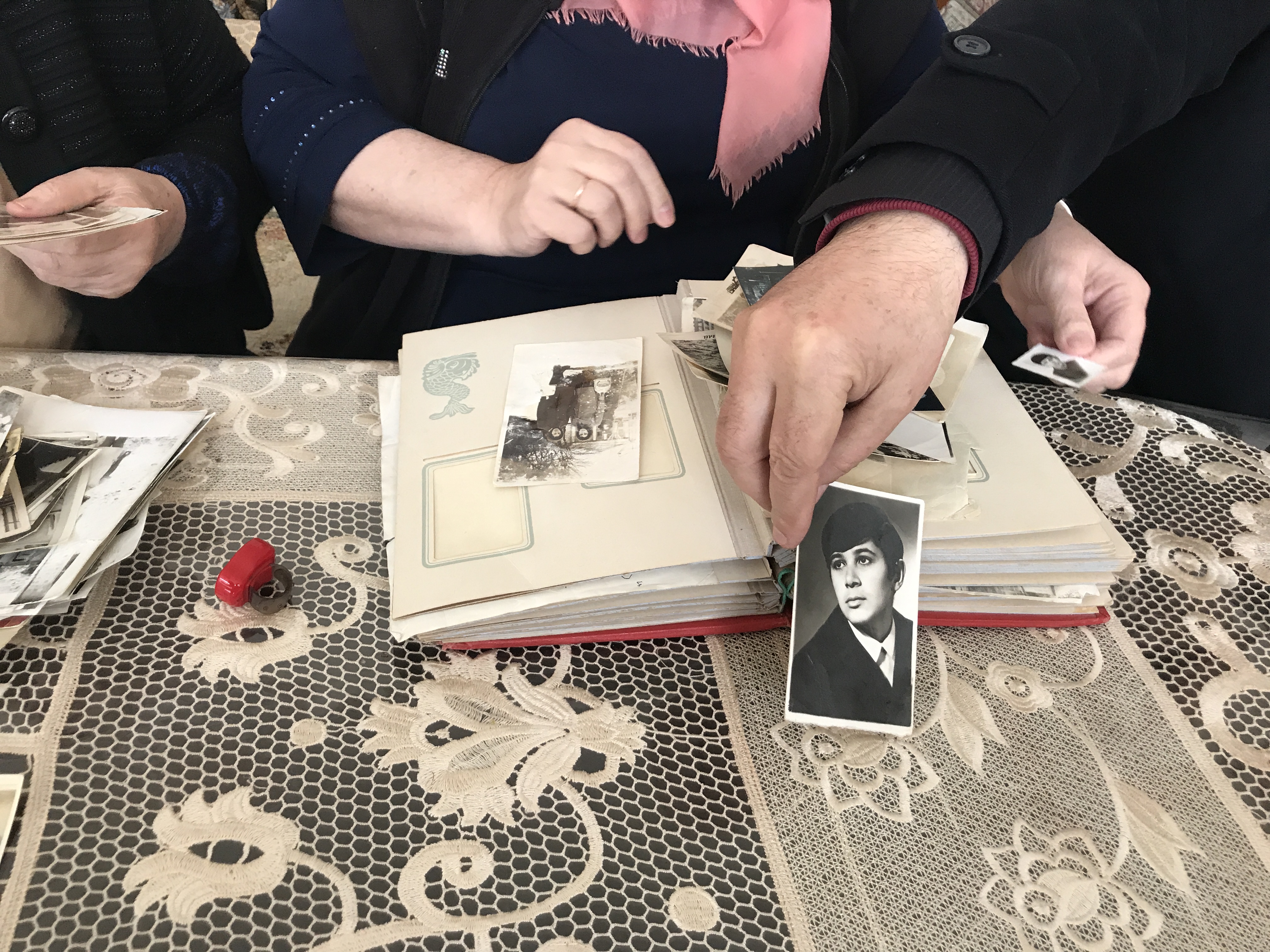
After Ramzan Kadyrov, the head of the republic, informed law enforcement that ‘drug addiction and terrorism are evils of the same force’ at a special session in 2016, demanding that ‘those people who break the law in the Chechen Republic should be shot to hell’, the North Caucasus republic witnessed an active anti-drug campaign. In August 2017, a new unit was created to lead the fight against drugs in Chechnya, and people were rounded up in groups on drug possession charges. These trials were often held according to ‘special procedures’, a legal provision whereby defendants admit their guilt in advance, and courts do not examine the evidence against them.
By the end of 2017, Chechnya was a ‘leading region’ in terms of the number of drug-related offences. According to Marina Dubrovina, charges on participation in an illegal armed group, weapon possession, and drg possession are the most frequently used in the republic.
Indeed, drug possession charges are often used against individuals the Chechen authorities don’t like. In 2014, Ruslan Kutayev, head of the Assembly of the Peoples of the Caucasus, was arrested after police officers ‘found’ enough heroin for a possession in a significant amount charge. Kutayev had previously criticised the authorities for ignoring an important date for Chechens — 23 February, the date used to mark the start of Soviet deportation operations in 1944. In 2016, journalist Zhalavdi Geriyev was detained on narcotics charges — he was ‘found’ with a bag of marijuana slightly smaller than that ‘found’ on Titiyev.
Geriyev is due to be released from prison soon — his sentence ends on 1 May. Kutayev was released at the end of 2017, and he came to support Titiyev at the sentencing hearing.
‘You’ll spend a little time there and then you’ll be home’, Kutayev said to Titiyev through the bars.
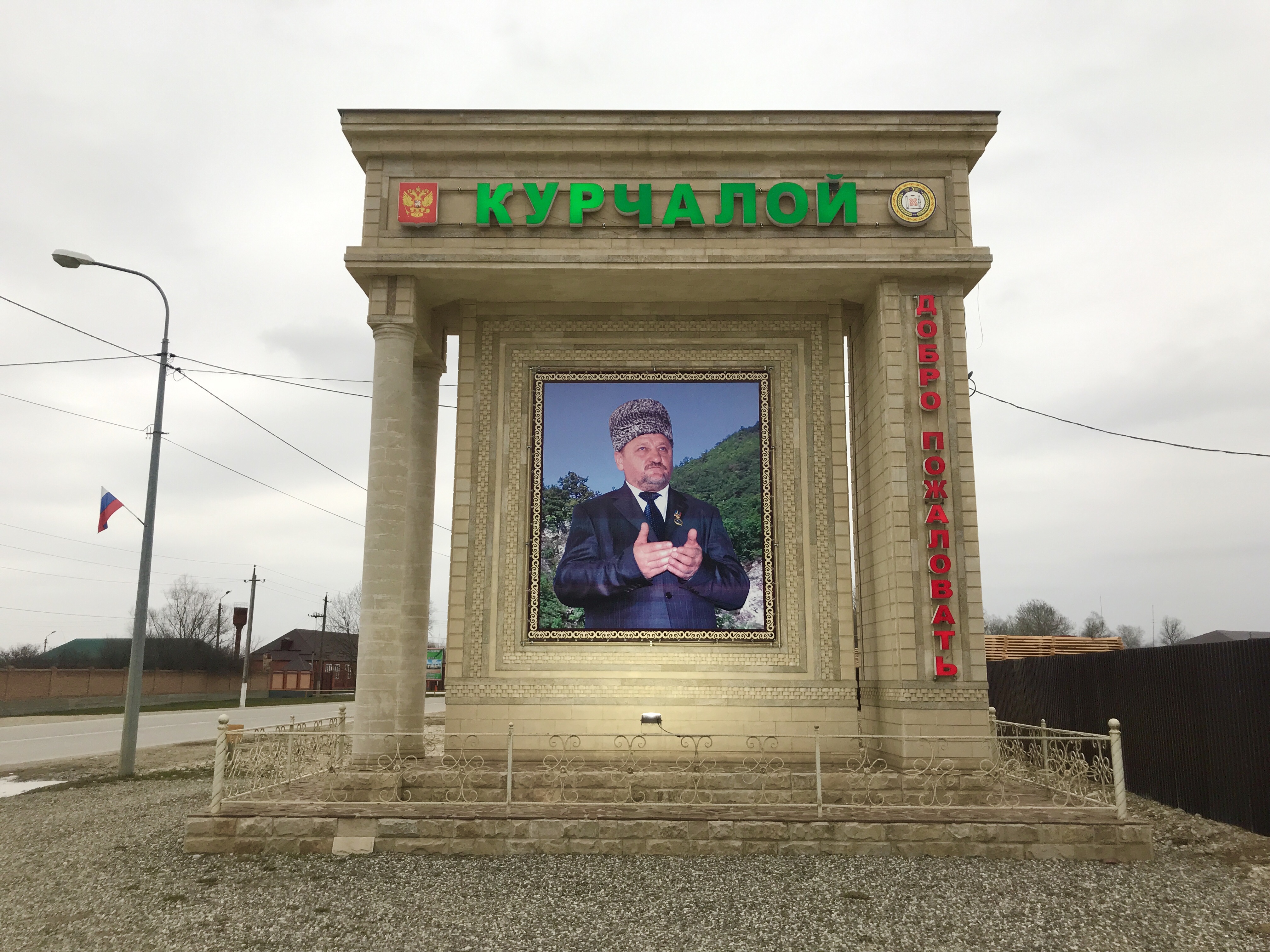
‘Oyub’s handwriting’
The Memorial human rights association began working in Chechnya in 1994. In 2006, it had four active offices in the republic — by 2014, it had only one left, in Grozny.
It was on the balcony of this office on 16 January that Chechen police found two ‘suspicious cigarettes’ and several notes scribbled on paper. Predictably, these cigarettes were later found to contain marijuana. The notes were in Oyub’s handwriting. ‘There were names and telephone numbers written on these papers. They were used as filters [for the cigarettes]. They removed the normal filters and used these notes instead’, says lawyer Pyotr Zaikin. ‘They analysed the handwriting and “found” that it was Oyub’s.’
Titiyev’s legal counsel disputed that these ‘cigarettes’ belonged to their client. Zaikin was surprised that the police didn’t find pages from Titiyev’s passport found instead, given the level of preparation that went into the ‘evidence’ against him. Zaikin is convinced that this evidence appeared in the case in order to further discredit Titiyev.
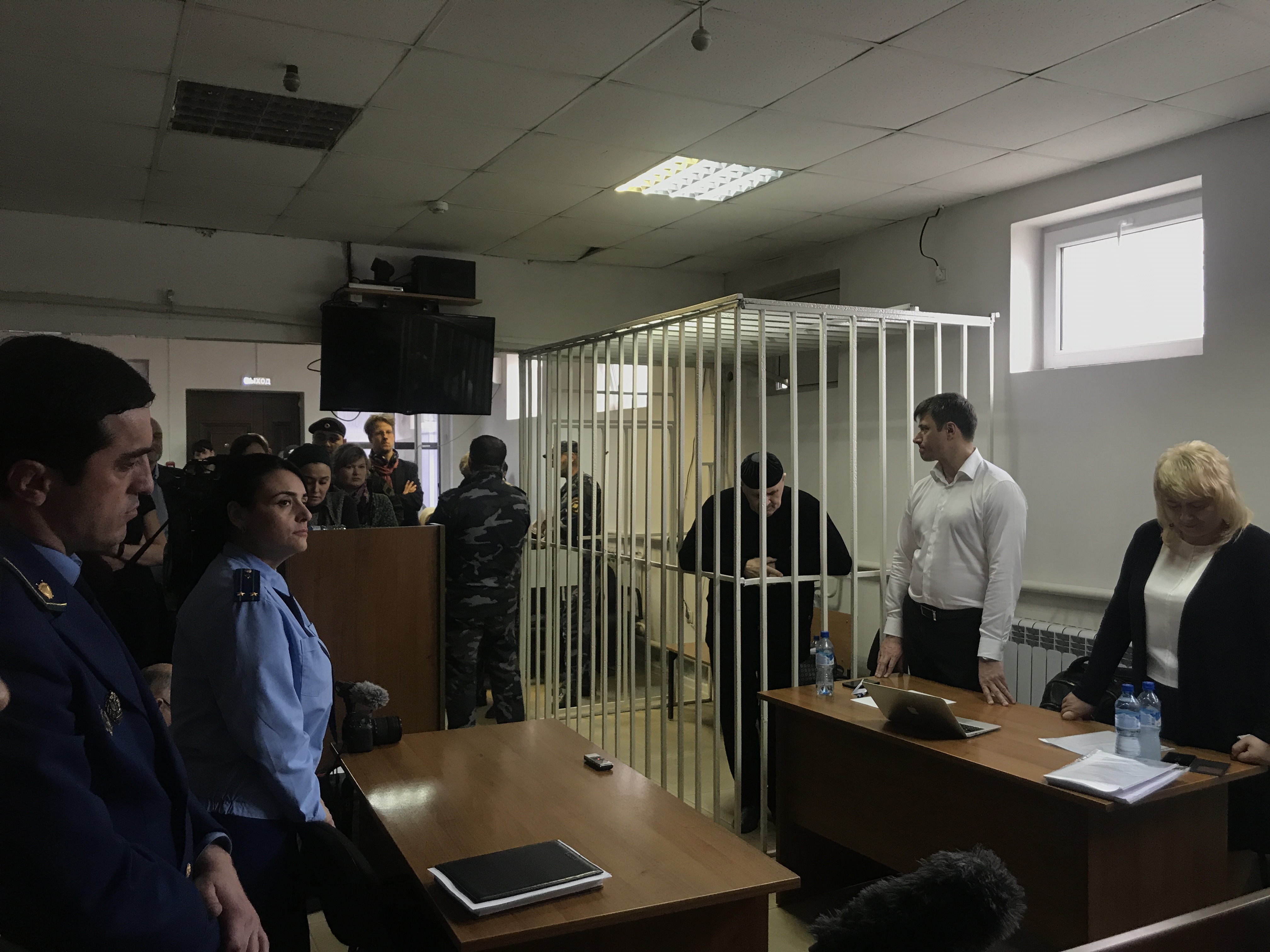
Clear signals
Titiyev’s conviction is a signal both to the Chechen rights defender and his colleagues, Oleg Orlov, who runs Memorial’s North Caucasus programme, says.
‘This is a signal from the Chechen authorities that they will suppress rights defenders, that there is no place for them here. It’s a clear, obvious signal, it’s been given over the past few years. Just remember the attack on the office of the Committee Against Torture.’
For Orlov, there’s a signal to Russian society as a whole, too. ‘It’s not the Chechen authorities giving this signal — a civic campaign in support of a political prisoner in Russia isn’t without meaning, even in the totalitarian conditions in Chechnya.’
It’s hard to say what conditions led to a sentence lighter than that requested by the Chechen prosecutors. But it’s clear that the Chechen leadership is behind this sentence, not the Shali judge, says Orlov.
‘Perhaps it was an order from the Kremlin, who came to the conclusion that it was better to lighten the sentence. Otherwise there would be too much outcry over the case. But we clearly understand that this was a forced move for them. They would never do this by themselves — they would have thrown the book at Oyub.’
‘They basically said to Oyub: you can appeal this sentence, and then it won’t be clear what the outcome will be. There will be the risk that you could get a stricter sentence. But if you don’t appeal it, then there’s a chance to get parole.’
Indeed, Titiyev has decided not to appeal against the Shali court ruling, though he emphasises that he hadn’t changed his position. ‘I’ve never admitted my guilt, I don’t admit it now, and I won’t admit it in the future, not under any circumstances’, said Titiyev on 1 April.
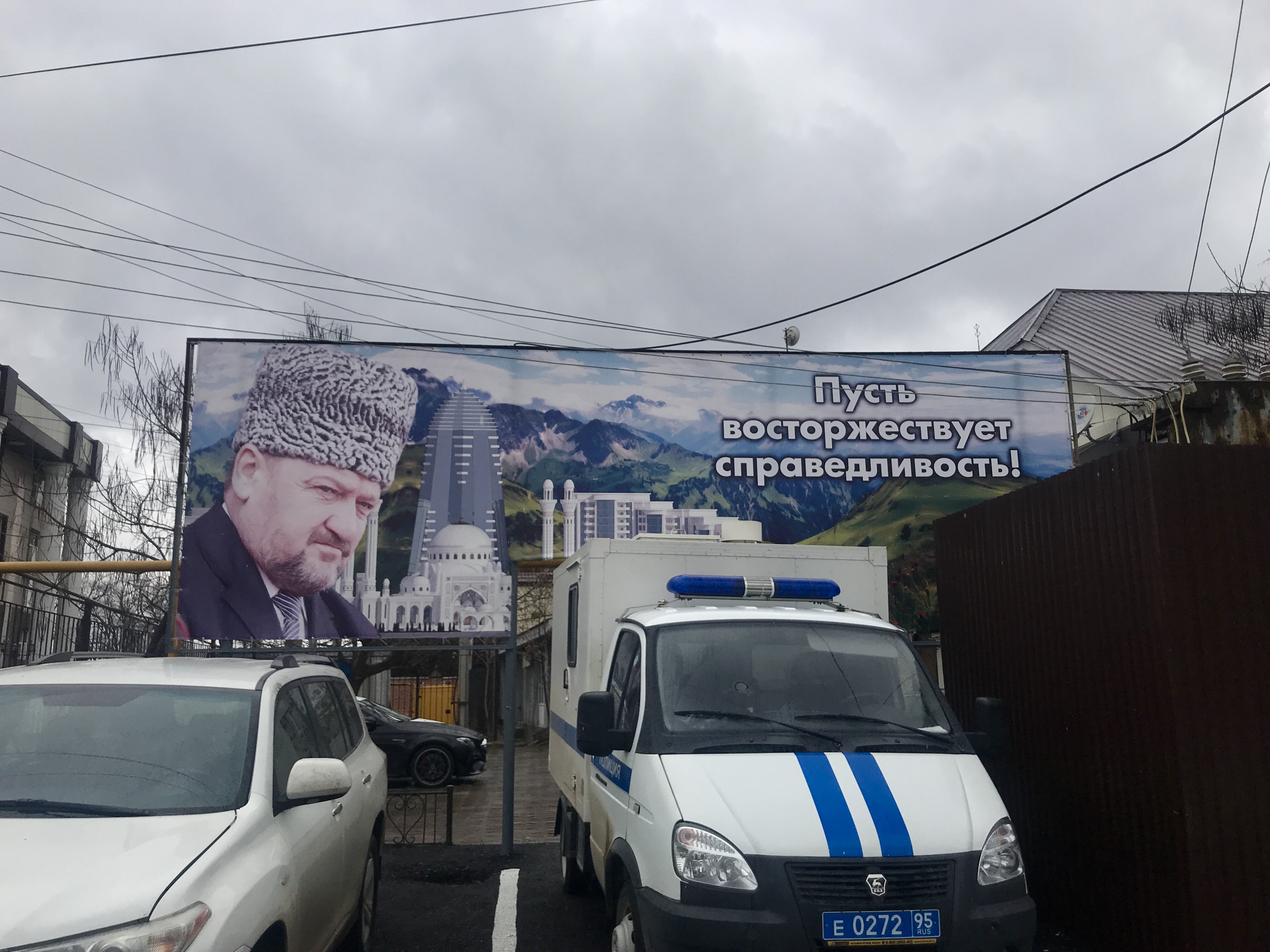
Strange democracy
18 March: Oyub stands behind bars in the small Shali courthouse. He’s wearing a dark blue suit — it was made to order, a present from his family. He’s wearing a dark blue tyubeteyka hat, too. He frowns and put his glasses on. As he reads out his last address to the court, he keeps his back straight — Titiyev has great posture for his age.
‘I, Titiyev Oyub Salmanovich, wound up behind bars by God’s will on 9 January 2018. I take this challenge with gratitude… I’ve lived in Kurchaloy since childhood. Now I’m 61. There’s been many changes in this time, the authorities have changed, socialism is now in the past, and democracy has replaced it. We have a strange democracy in this country — in democratic countries people don’t get imprisoned for clicks on the internet. But parliament really tries: every day it stamps out laws that limit freedom.’
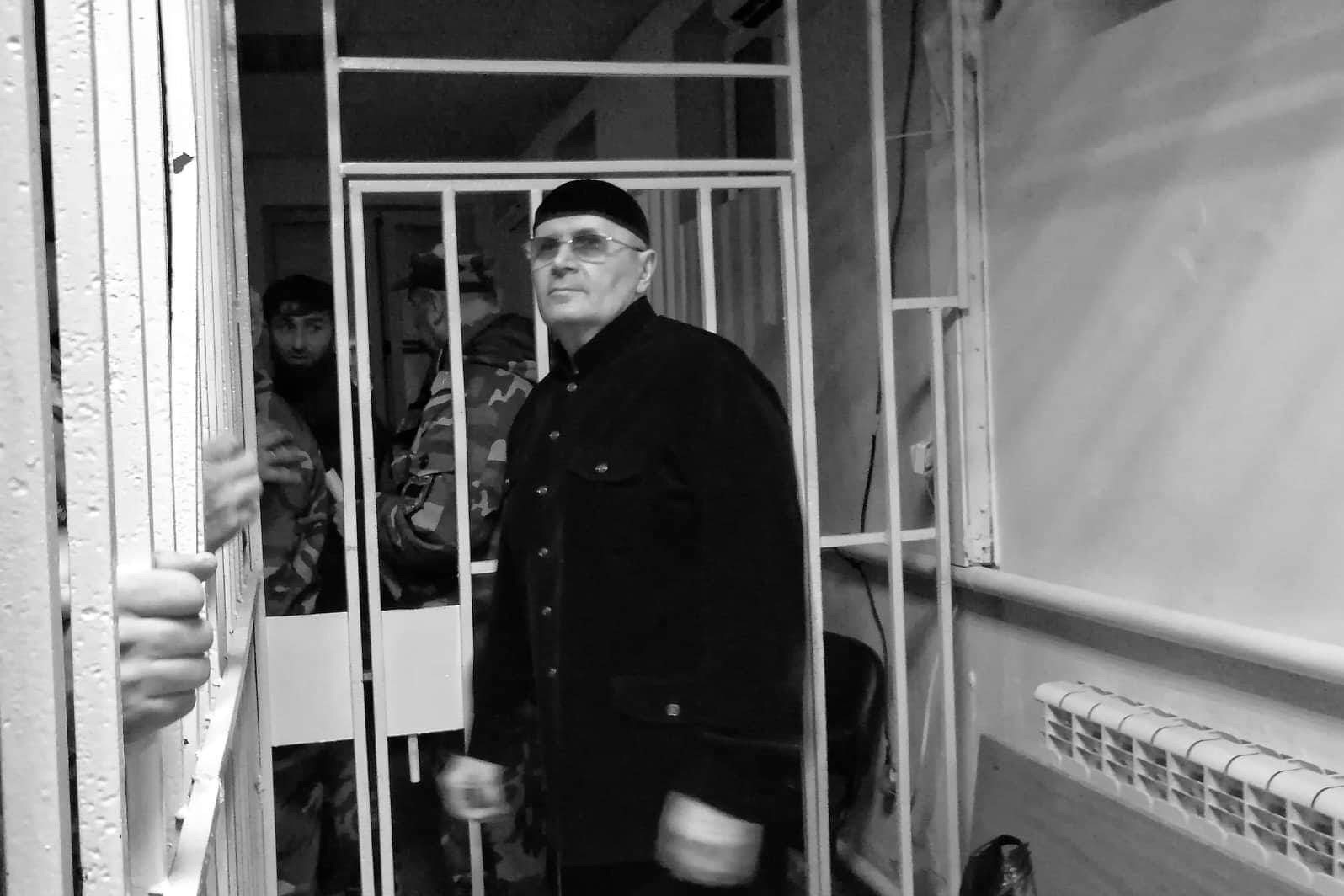
Oyub was always sure that he would be convicted, he never had any illusions on this account. ‘There aren’t any not guilty verdicts in this country. This testifies to the prosecutors’ complete control of the country’s judiciary.’
‘Those who fabricated this case think that they have a justification — the orders from above. But there wasn’t any order. Perhaps, there was a desire, an indication, but everyone rushed to carry it out in anticipation of the dividends. Fifteen or 20 years ago no one would have believed that this kind of trial would be possible in our republic. I’m afraid to imagine what we’ll have in another 20 years. I think I won’t live to see it.’
There’s silence in the courtroom. Oyub has never spoken for this long — nearly 40 minutes — and he won’t get the chance to do so again. In a week, he’ll receive his sentence, after which he’ll say a few words to the journalists present and then be removed from the courthouse.
‘God told us to fight against injustice. This is why we’ll fight to the end.’
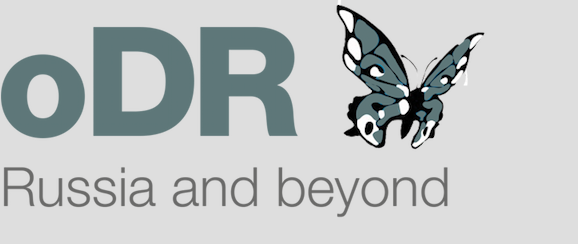 This article was produced in partnership with Open Democracy Russia. A similar version is available on their website.
This article was produced in partnership with Open Democracy Russia. A similar version is available on their website.


